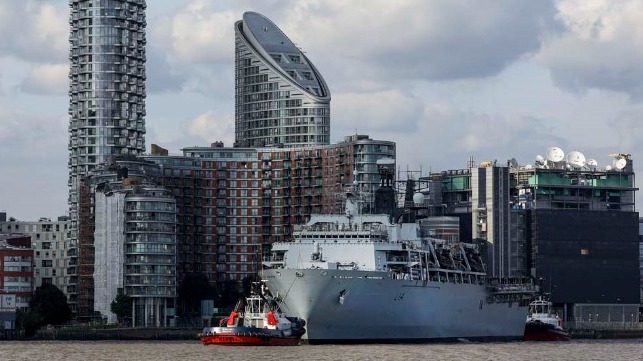Maritime Leaders Convene to Tackle Industry Challenges at LISW

The global shipping industry will converge this week in London as the maritime industry’s thought-leaders and policy makers lead a host of events exploring a breadth of topics, including the race to cut emissions, the importance of seafarer welfare and shipping's role in the global economy.
“International challenges require international solutions and it’s right government seeks to lead regulatory action here in London. We can play a leading role in driving change globally and this starts at the London Shipping Week.” said Maritime UK Chairperson Sarah Kenny. “There are already fantastic technologies being developed and deployed [in the UK] and the industry is determined that these will accelerate in close partnership with the government.”
In a new report launched ahead of the London event, Lloyd’s Register contends that the transition to zero-carbon shipping will be among the most significant developments in the sector’s history, with investments made today preventing future supply chain interruptions. However, a lack of regulatory certainty and support from policymakers could see a rushed and uncoordinated transition, potentially leading to significant disruption.
“Our industry . . . must act now and many of us are. The question that remains is ‘how’ the maritime industry will deliver meaningful change during this crucial decade of action,” said Nick Brown, CEO of Lloyd’s Register.
The UK has already adopted a string of initiatives to slash carbon from shipping, including a commitment to establish the Shipping Office for Reducing Emissions (UK SHORE) - a dedicated unit within the Department for Transport solely focused on decarbonizing the maritime sector. Britain intends to push for net zero global shipping emissions by 2050, along with the launch of non-polluting commercial vessels as early as 2025.

that matters most
Get the latest maritime news delivered to your inbox daily.
Meanwhile, the UK’s ship and boatbuilding industries are using the conference as an opportunity o lobby the prime minister to “bring the shipbuilding back home." In 2019, Boris Johnson promised to ensure that the next generation of border patrol and coastguard emergency vessels are built in British yards. Now the industry is calling for a loan guarantee scheme that would reduce financial costs for the sector and put Britain on a level playing field with the likes of Norway and Germany.
“Every time an order goes abroad, an opportunity to create jobs, new skills and economic growth in the UK is lost. A home shipbuilding guarantee scheme would go a long way towards bringing these orders back to our yards and unlocking enterprise and green innovation in our coastal communities,” said Ben Murray, CEO of Maritime UK.
